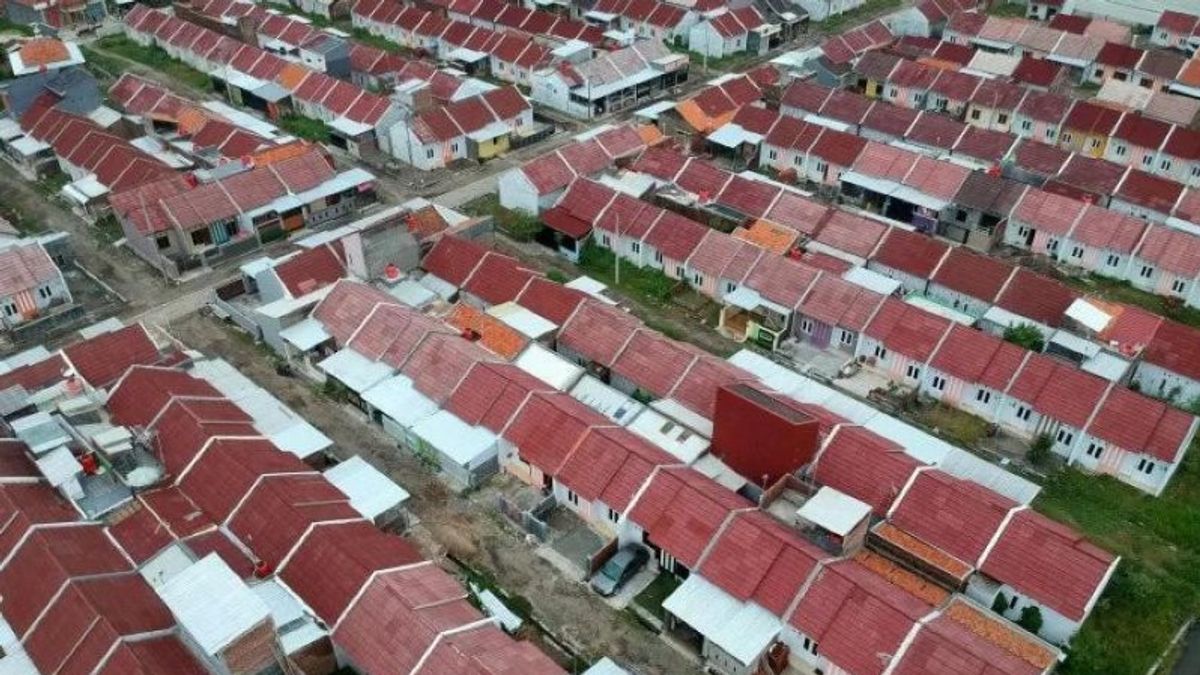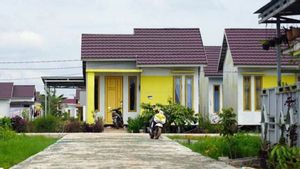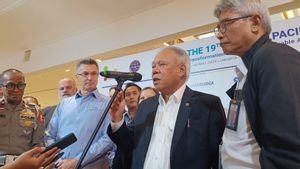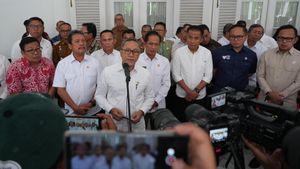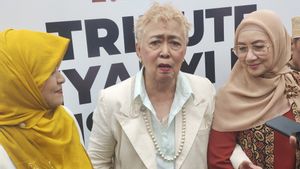JAKARTA - Indonesia Property Watch assesses that the government's policy as stated in Government Regulation (PP) Number 21 of 2024 related to the Public Housing Savings (Tapera) program will be able to increase the endowment of housing loans so that it can be a driving force in accelerating the decline in housing backlogs.
Indonesia Property Watch (IPW) CEO Ali Tranghanda said that with the housing endowment fund, it is hoped that many MBR people can get cheap financing. However, it is still feared that it will be related to its management.
"This should be good for housing endowment funds, but still worried that the management should be managed properly," he told VOI, Tuesday, May 28.
Ali assessed that Tapera's contributions have the potential to increase the burden on entrepreneurs because there are many contributions such as BPJS Kesehatan, BPJS Ketenagakerjaan, and others that must be paid by employers. In addition, many workers also refuse this.
"Indeed, because entrepreneurs will be burdened. Entrepreneurs must be given proof that funds are used effectively and transparently to the public," he explained.
Therefore, Ali conveyed the need for proof that Tapera funds, which are public funds, are used on target, effective and transparent in the community.
"The allocation must be on target because it involves big money and community money as well," he said.
Ali added that there needs to be supervision carried out by involving representatives from consumers, in this case the community, professionals, and entrepreneurs because it is community funds.
"Currently on the Tapera board there should be a vice-consumer or community to monitor and supervise," he said.
For information, President Joko Widodo has set Government Regulation Number 21 of 2024 concerning amendments to Government Regulation (PP) Number 25 of 2020 concerning Public Housing Savings (Tapera).
Article 15 paragraph 1 of PP 21/2024 stipulates that the Amount of Participant Deposits is set at 3 percent of Salaries or Wages for Workers and Income Participants for Independent Workers.
Meanwhile, in paragraph 2, the amount of Participants' Deposit as referred to in paragraph (1) for Workers' Participants is jointly borne by employers of 0.5 percent and workers of 2.5 percent.
This rule generally does not only apply to private workers but also regulates ASN, TNI and Polri who are paid directly by the state.
Meanwhile, Tapera contributions for workers who receive salaries or wages sourced from the state treasury will be directly regulated by the Ministry of Finance through joint coordination with the Ministry of Administrative Reform and Bureaucratic Reform.
SEE ALSO:
Meanwhile, the Tapera contributions from BUMN employees, BUMD, BUMDes, and private employees will be regulated by the Ministry of Manpower. Then, for independent workers, BP Tapera will regulate it directly
Meanwhile, several main things regulated in Government Regulation Number 21 of 2024 regulate the provisions including the authority to regulate Tapera Participation by the relevant Ministry, as well as the separation of sources of funds between funds for Housing Financing Liquidity Facilities (FLPP) from Tapera funds.
BP Tapera was formed based on Law Number 4 of 2016 concerning Public Housing Savings, which is further regulated through Government Regulation Number 25 of 2020 concerning the Implementation of Public Housing Savings, with the aim of collecting and providing sustainable long-term low-cost funds for housing financing in order to meet the needs of decent and affordable houses for participants, as well as having functions to protect the interests of participants.
BP Tapera carries the mandate in the form of distribution of housing financing based on savings based on mutual cooperation.
In addition, participants who are included in the Low-Income Community (MBR) category can get benefits in the form of Home Ownership Loans (KPR), Home Building Loans (KBR), and Home Renovation Loans (KRR) with long tenors of up to 30 years and interest rates remain below the market interest rate.
The English, Chinese, Japanese, Arabic, and French versions are automatically generated by the AI. So there may still be inaccuracies in translating, please always see Indonesian as our main language. (system supported by DigitalSiber.id)
